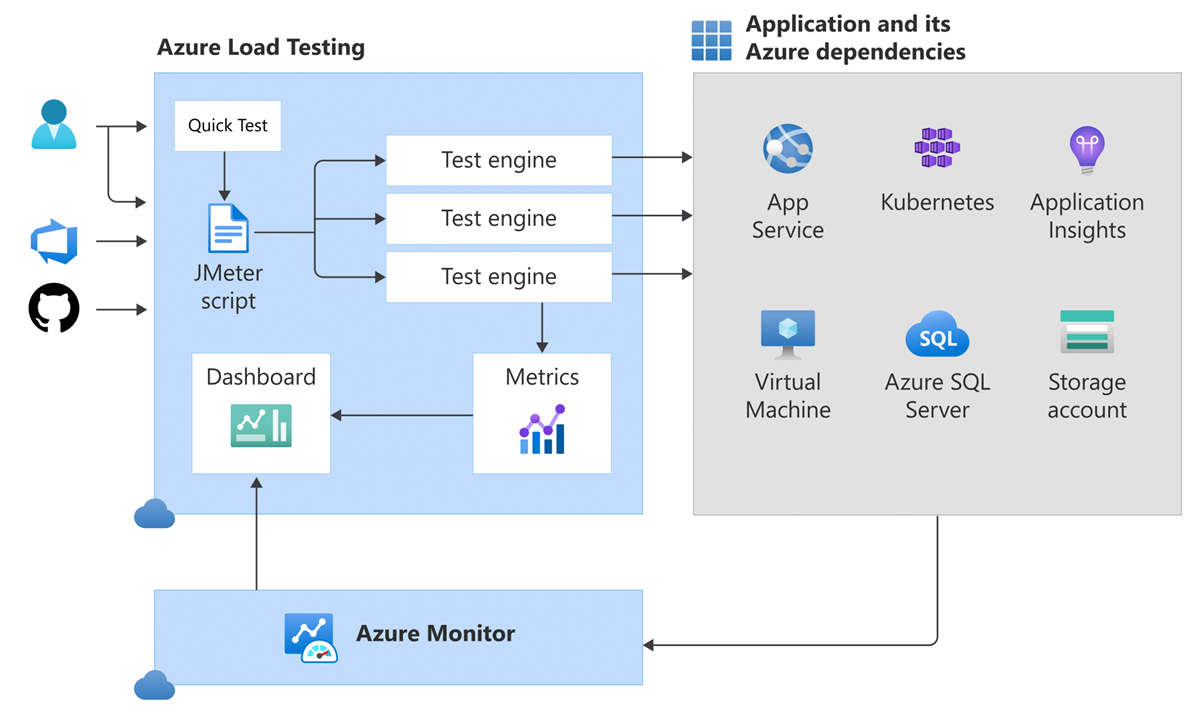Xome® has high standards when it comes to ensuring our applications meet specified quality requirements and user expectations. This is why we chose to migrate our quality assurance (QA) processes to Microsoft Azure Load Testing as a part of our larger cloud migration effort.
Cloud-based load testing in Microsoft Azure allows us to scale load testing resources up or down based on demand, allowing for varying levels of load to be accommodated. Large numbers of virtual users can be simulated for applications to handle peak traffic without performance degradation.
With this effort, we can ensure our applications have minimal defects, are secure and compliant, providing an overall high-quality experience for our users.
Why migrate to Microsoft Azure Load Testing?
We were faced with two major issues when determining the page load capacity of Xome search on our new Azure cloud infrastructure versus our virtual machines (VMs) running on our servers.
The prior load testing tools we used were not suitable for capturing the overall page load time of a webpage while supporting huge loads. There also was not a centralized solution for the load test initiation. QA engineers were initiating tests from their local machine.
We needed to come up with a re-useable, distributed infrastructure setup to efficiently test the required load on a target webpage. This way we could effectively capture the page load time under the target load and fine-tune the infrastructure to ensure that the page load time remained within acceptable parameters.
Microsoft’s Apache JMeter-based Azure Load Testing was the solution that made the most sense for us. Apache JMeter provides us with the required capabilities including distributed execution, the ability to execute multiple requests while simulating asynchronous calls made by the webpage, and 90% throughput. HTML-based execution reports are generated by the built-in solution and presents us with both high level and in-depth performance metrics.

Benefits of moving to Microsoft Azure Load Testing
A big benefit of using Microsoft Azure Load Testing is that it doesn’t require the expensive and time-consuming setup of a multiple VM-based infrastructure. It also automates best practices for secure and reliable testing.
For our QA processes, Microsoft Azure Load Testing provides us a wide range of tools and services. One of these is a Apache JMeter script execution environment with on-demand executors to increase or decrease at fraction of the cost, using the executor only at the time of execution. These range from 20 minutes to an hour per test execution cycle.
We can run performance tests against web and mobile applications, web APIs, microservices, and database connections. High-scale load tests can be started in the Azure portal, so we get earlier insights to how the application reacts to stress. The Azure Load Testing dashboard gives us live updates of the client and server-side metrics while the test is running. Once the test is finished, we can look for any performance bottlenecks in the dashboard and prevent any problems from being undetected.
It also supports a variety of protocols supported by Apache JMeter, like HTTP, HTTPS, TCP, JDBC, LDAP, and FTP. Since Apache JMeter is open source, we have access to a huge developer community of support so the script can easily adapt to upcoming advancements in load testing.
The future of QA at Xome
Migrating to a cloud-based load testing solution helps us detect and address performance issues early in the development lifecycle, leading to a better application experience that is reliable under various load conditions. The better our applications perform, the happier our users are.
As Xome continues to explore cloud-based solutions, we can continue to adapt to changing requirements, future growth, and ensure the ongoing quality of our applications for the long term.







